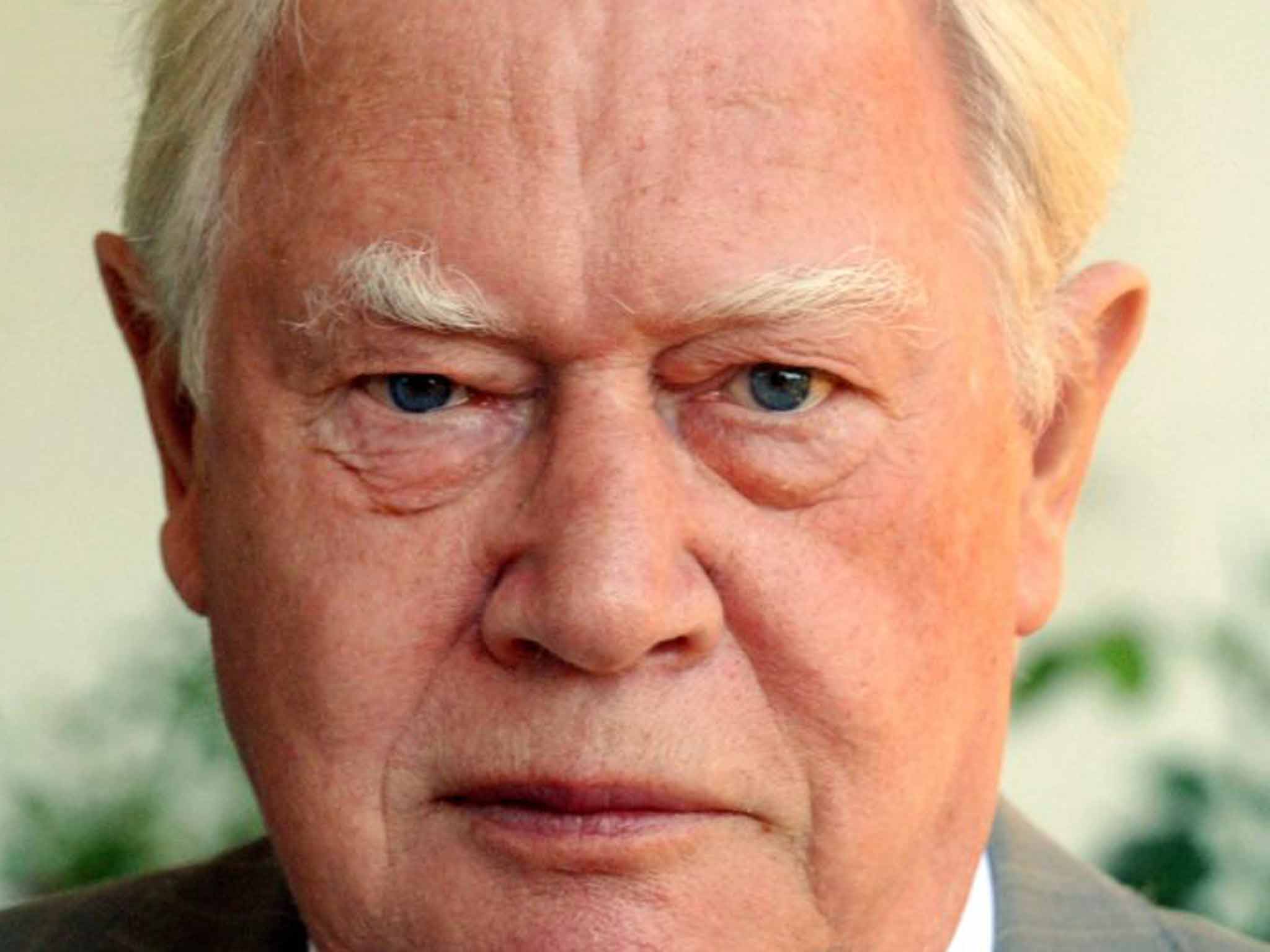Hans Mommsen: Historian who believed Hitler was a 'weak dictator' and the Holocaust was driven by subordinates
In his book Civil Servants in the Third Reich, Mommsen maintained that many different groups had to share some of the responsibility for the regime's crimes against humanity

Your support helps us to tell the story
From reproductive rights to climate change to Big Tech, The Independent is on the ground when the story is developing. Whether it's investigating the financials of Elon Musk's pro-Trump PAC or producing our latest documentary, 'The A Word', which shines a light on the American women fighting for reproductive rights, we know how important it is to parse out the facts from the messaging.
At such a critical moment in US history, we need reporters on the ground. Your donation allows us to keep sending journalists to speak to both sides of the story.
The Independent is trusted by Americans across the entire political spectrum. And unlike many other quality news outlets, we choose not to lock Americans out of our reporting and analysis with paywalls. We believe quality journalism should be available to everyone, paid for by those who can afford it.
Your support makes all the difference.Hans Mommsen was one of the foremost authorities on Nazi Germany and the Holocaust, though his views were not without controversy. He saw the Final Solution as a result of what he called the “cumulative radicalisation” of the German state rather than a long-term plan on the part of Adolf Hitler. For Mommsen, although Hitler was clearly anti-semitic lacked a real idea of what he wanted to do with Jews.
In his book Civil Servants in the Third Reich (1966), Mommsen maintained that many different groups had to share some of the responsibility for the regime's crimes against humanity – business leaders, the aristocracy, the judiciary, civil service and the military. “The Dictator,” he wrote, “was only the extreme exponent of a chain of antihumanitarian impulses set free by the lapse of all institutional, legal, and moral barriers, and once set in motion, regenerating themselves in magnified form.”
Hitler, Mommsen believed, was “a weak dictator” who was less involved in his own adminstration than might be believed, while the Holocaust was a product of the fractured decision-making process in his regime. His subordinates took most of the initiative, said Mommsen, and the Final Solution was largely the result of bureaucratic turf wars between factions attempting to outdo each other in pleasing Der Führer.
Mommsen was born in Marburg into a family of historians. His father Wilhelm was one, while his great-grandfather Theodor Mommsen was an historian of ancient Rome who received the Nobel Prize in Literature in 1902. Hans' twin brother and another brother also became historians. He studied German, history and philosophy at the universities of Heidelberg, Tübingen and Marburg, and would go on to be professor at the former two, as well as the universities of Heidelberg and Bochum. He was a member of the Social Democratic Party from 1960 onwards; much of his early work examined the history of Germany's working class.
In 1986 Volkswagen asked him to look at how the car company had behaved under the Third Reich. In his book Volkswagen and Its Workers During the Third Reich (1996, written with Manfred Grieger) Mommsen demonstrated convincingly that VW had used slave labour.
Hans Mommsen, historian: born Marburg, Germany 5 November 1930; married 1966 Margaretha Reindel; died Tutzing, Germany 5 November 2015.
Join our commenting forum
Join thought-provoking conversations, follow other Independent readers and see their replies
Comments